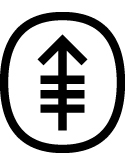A prospective randomized comparison of epirubicin and doxorubicin in patients with advanced breast cancer Journal Article
| Authors: | Jain, K. K.; Casper, E. S.; Geller, N. L.; Hakes, T. B.; Kaufman, R. J.; Currie, V.; Schwartz, W.; Cassidy, C.; Petroni, G. R.; Young, C. W.; Wittes, R. E. |
| Article Title: | A prospective randomized comparison of epirubicin and doxorubicin in patients with advanced breast cancer |
| Abstract: | Fifty-four patients with advanced breast cancer who had failed prior nonanthracycline combination chemotherapy were randomized to treatment with either epirubicin 85 mg/m2 or doxorubicin 60 mg/m2 intravenously every three weeks. Of 52 evaluable patients, 25% (six of 24) treated with epirubicin, and 25% (seven of 28) treated with doxorubicin experienced major therapeutic responses. The median duration of response to epirubicin was 11.9 months compared to 7.1 months with doxorubicin. Cardiotoxicity was monitored by serial multigated radionuclide cineangiocardiography performed at rest and after exercise. Laboratory evidence of cardiotoxicity was defined as a decrease in resting left ventricular ejection fraction of > 10% from the baseline value, or a decrease of 5% or greater with exercise compared with the resting study performed on the same day. Fifteen patients treated with epirubicin and 18 patients treated with doxorubicin had at least two determinations of left ventricular ejection fraction and were evaluable for laboratory cardiotoxicity. Using methods of survival analysis, the median doses to the development of laboratory cardiotoxicity were estimated to be 935 mg/m2 of epirubicin and 468 mg/m2 of doxorubicin. Four patients treated with epirubicin and five treated with doxorubicin developed symptomatic congestive heart failure. The median cumulative dose at which congestive heart failure occurred with 1,134 mg/m2 of epirubicin compared with 492 mg/m2 of doxorubicin. Fewer episodes of nausea and vomiting were observed in patients receiving epirubicin. Epirubicin is a new anthracycline with reduced cardiac toxicity, but preserved efficacy in the treatment of patients with advanced breast cancer. |
| Keywords: | cancer chemotherapy; clinical article; doxorubicin; drug efficacy; chemotherapy; breast cancer; breast; nausea; vomiting; gastrointestinal toxicity; cardiotoxicity; epirubicin; drug dose; drug therapy; toxicity; heart left ventricle ejection fraction; heart; adverse drug reaction; therapy; intravenous drug administration; intoxication; drug comparison; cancer; human; priority journal |
| Journal Title: | Journal of Clinical Oncology |
| Volume: | 3 |
| Issue: | 6 |
| ISSN: | 0732-183X |
| Publisher: | American Society of Clinical Oncology |
| Date Published: | 1985-06-01 |
| Start Page: | 818 |
| End Page: | 826 |
| Language: | English |
| DOI: | 10.1200/jco.1985.3.6.818 |
| PROVIDER: | scopus |
| PUBMED: | 3859587 |
| DOI/URL: | |
| Notes: | Article -- Export Date: 26 October 2021 -- Source: Scopus |
Altmetric
Citation Impact
BMJ Impact Analytics
Related MSK Work





